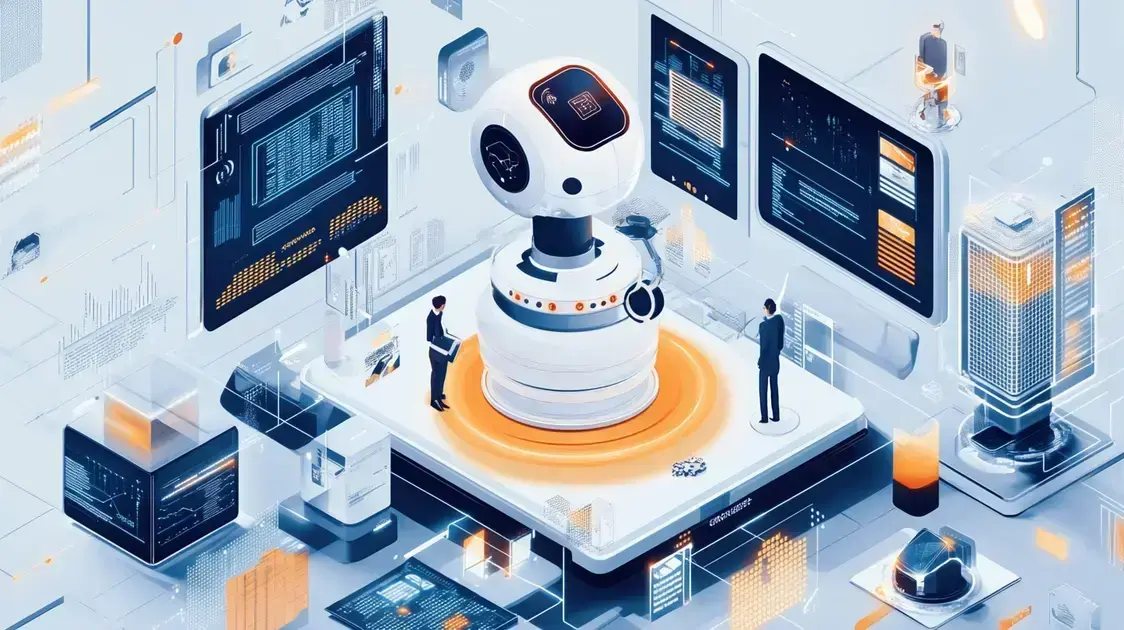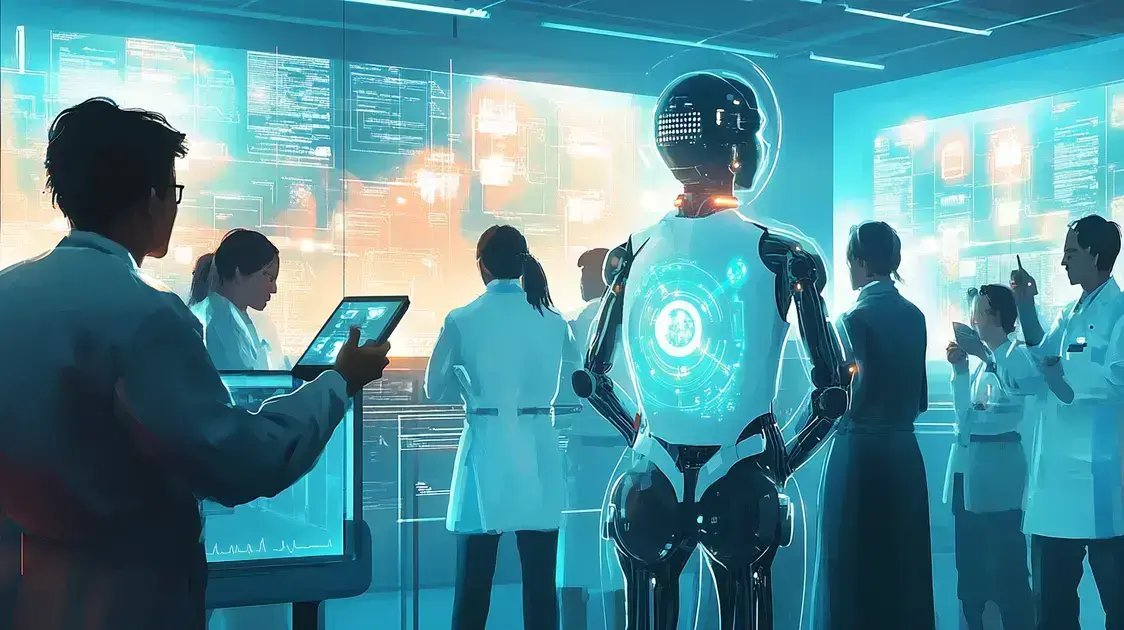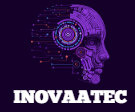AI is driving innovation across multiple industries by automating tasks and streamlining operations. Businesses are leveraging AI to reduce errors, save time, and boost productivity on a large scale.
In sectors like healthcare and education, AI is driving innovation through personalised services and smarter decision-making. These advancements improve outcomes and create more engaging experiences for users.
From everyday apps to complex business systems, AI is driving innovation that transforms how we live and work. Want to see how these changes could impact your world? Keep reading to discover the possibilities.
Understanding AI and its Role in Innovation
AI is driving innovation by transforming how businesses operate and make decisions. With its ability to process large volumes of data quickly, AI helps companies uncover insights, automate tasks, and improve efficiency across various industries.
From healthcare to finance, AI is driving innovation in ways that were once unimaginable. It enables personalized services, enhances customer experiences, and supports the development of smarter products and solutions that adapt to user needs.
As technology continues to evolve, AI is driving innovation by opening doors to new possibilities. Its role in shaping the future is clear, making it a key force behind ongoing progress in the digital age.
Key Industries Transformed by AI
AI is driving innovation across key industries, reshaping how they operate and deliver value. In healthcare, AI helps with early diagnosis, treatment recommendations, and personalized care, improving outcomes and saving lives.
In finance, AI is driving innovation through fraud detection, automated trading, and customer service chatbots. These technologies make financial systems faster, safer, and more user-friendly.
Retail, manufacturing, and transportation are also evolving rapidly as AI is driving innovation. From supply chain automation to personalized shopping experiences and self-driving vehicles, AI continues to revolutionize how industries meet modern demands.
The Impact of AI on Business Processes

AI is driving innovation by streamlining business tasks. It automates data entry, customer service, and supply chain operations, cutting errors and saving time while boosting productivity.
In data and customer experience, AI is driving innovation through smart insights and personalization. It helps businesses make better decisions and tailor services to each user.
AI is driving innovation in scaling and cost-cutting too. It allows companies to adapt quickly, reduce expenses, and grow without major changes, staying competitive in fast-moving markets.
AI Innovations in Healthcare
AI is driving innovation in healthcare by improving diagnosis, treatment, and disease management. It can analyse medical images with precision and use predictive analytics to anticipate health risks, allowing earlier and more effective care.
In treatments and operations, AI is driving innovation through personalised medicine and surgical robots. It helps doctors tailor care to each patient and assists surgeons with precision, while also reducing administrative burdens in hospitals.
Telemedicine and drug development also show how AI is driving innovation. AI-powered platforms offer remote consultations, and pharmaceutical companies use AI to speed up the discovery of new treatments, making healthcare faster and more accessible.
AI in Education: A Transformative Force
AI is a transformative force in education, reshaping how students learn and teachers instruct. By integrating AI technologies into educational settings, schools and universities are enhancing the learning experience.
Personalised Learning
One of the key benefits of AI in education is personalised learning. AI systems analyse student data to provide tailored educational content. This allows students to learn at their own pace and focus on areas that require improvement, making education more effective.
Intelligent Tutoring Systems
AI-powered intelligent tutoring systems offer students additional learning support outside the classroom. These systems can identify a student’s strengths and weaknesses, providing customised exercises and feedback. This enhances understanding and retention of material.
Administrative Efficiency
AI also streamlines administrative tasks for educators. Automated grading systems help teachers save time on marking assignments, allowing them to focus on teaching and supporting students. This reduces burnout and enhances overall productivity within educational institutions.
Data-Driven Insights
Through data analysis, AI provides educators with insights into student performance. By identifying trends and patterns, teachers can make informed decisions about curriculum improvements and teaching methods. This data-driven approach supports better educational outcomes.
Engaging Learning Experiences
AI enhances engagement through interactive learning environments. Virtual assistants and AI-driven educational games make learning fun and immersive. This interactive approach helps students stay motivated and encourages active participation in their education.
Accessibility and Inclusivity
AI technologies improve accessibility for students with disabilities. Adaptive learning tools cater to different needs, ensuring that everyone has an opportunity to succeed. This inclusivity fosters a diverse and supportive learning environment.
Future-Ready Skills
Integrating AI into education helps students develop essential 21st-century skills. As AI continues to shape the job market, learning about AI technologies prepares students for future careers in an increasingly tech-driven world. They gain invaluable experience that enhances their employability.
Overall, AI is revolutionising education by creating personalised, engaging, and accessible learning experiences, preparing students for a successful future.
The Future of AI: Opportunities and Challenges

The future of AI presents both tremendous opportunities and significant challenges. As technology advances, it is crucial to explore how AI will shape various aspects of our lives.
Opportunities for Growth
AI has the potential to drive innovation across multiple sectors. By automating processes, businesses can operate more efficiently, leading to cost savings and increased productivity. Additionally, AI technologies can create new markets and industries, offering fresh job opportunities and economic growth.
Healthcare Advancements
In healthcare, the future of AI holds promise for breakthroughs in diagnosis and treatment. With AI analytics, medical professionals can better identify diseases earlier and develop personalised treatment plans tailored to individual needs. This could lead to better patient outcomes and reduced healthcare costs.
Enhancing Education
In education, AI will enable personalized learning. Students will benefit from study plans that cater to their unique learning pace and style. Interactive AI tools can provide additional support, making education more engaging, accessible, and effective.
Challenges of Ethical Concerns
Despite its potential, AI presents challenges, particularly regarding ethics and privacy. The use of AI in surveillance, data collection, and decision-making raises concerns about data security and individual rights. As AI systems operate on vast datasets, ensuring that data is handled ethically and transparently is essential.
The Need for Regulation
Governments and organisations must establish regulations that ensure the responsible use of AI. Developing policies that address bias in AI algorithms, protecting user privacy, and safeguarding jobs will be vital as AI continues to evolve and integrate into society.
Addressing Skills Gap
The rise of AI technologies also highlights the need for a skilled workforce. With AI automating some jobs, there will be an increasing demand for workers with expertise in AI systems and data analysis. Upskilling and reskilling the workforce will be crucial to prepare for the changes ahead.
Collaboration and Innovation
Collaboration between AI developers, businesses, and educational institutions will foster innovation in AI development. By working together, these stakeholders can ensure that AI technologies benefit society while addressing challenges responsibly.
In summary, the future of AI is filled with possibilities and hurdles. Embracing the opportunities while navigating the challenges will determine how AI shapes our world.
Real-World Examples of AI-Driven Innovation
Real-world examples of AI-driven innovation illustrate how organisations are successfully implementing AI technologies to solve problems and enhance efficiency across various sectors.
1. Google Assistant
Google Assistant uses AI to provide a seamless user experience. By understanding natural language and context, it can answer questions, set reminders, and provide recommendations. This innovative virtual assistant demonstrates the power of AI in enhancing everyday tasks for millions of users.
2. Tesla Autopilot
Tesla’s Autopilot feature is a groundbreaking example of AI in the automotive industry. Using machine learning and computer vision, Tesla vehicles can navigate roads, change lanes, and park autonomously. This advancement showcases how AI can improve safety and convenience in transportation.
3. Netflix Recommendations
Netflix employs AI algorithms to analyse viewer preferences and behaviours. This personalisation has transformed the way users engage with content. By suggesting shows and movies tailored to individual tastes, Netflix enhances user satisfaction and encourages longer viewing times.
4. IBM Watson
IBM Watson is an AI platform that helps healthcare professionals identify treatment options based on patient data. By processing vast amounts of medical literature and patient records, Watson provides insights that improve patient care and enhance decision-making in healthcare.
5. Amazon Alexa
Amazon Alexa is another significant AI innovation in smart home technology. Voice-activated commands allow users to control their devices, play music, set timers, and more. This integration of AI into daily life streamlines user experiences and fosters convenience.
6. AI in Retail – Sephora
Sephora has integrated AI technology, such as chatbots and virtual try-on features, to enhance customer experience. Shoppers can receive personalised product recommendations and visually try on makeup using augmented reality, transforming the retail experience.
7. Salesforce Einstein
Salesforce Einstein is an AI-driven platform that enhances customer relationship management (CRM). By analysing customer interactions and data, it provides sales teams with insights and recommendations, improving engagement and driving sales productivity.
These real-world examples of AI-driven innovation highlight the diverse applications of AI across industries, showcasing the potential for improving efficiency, personalisation, and user experience.
FAQ – Frequently Asked Questions about AI Innovations
How can AI improve productivity in businesses?
AI can automate repetitive tasks, allowing employees to focus on strategic projects, thus increasing overall productivity.
What are some examples of AI in healthcare?
AI is used in healthcare for diagnosing diseases, personalising treatments, and streamlining administrative processes, leading to better patient outcomes.
How does AI enhance the customer experience?
AI personalises interactions by analysing customer data, enabling businesses to provide tailored recommendations and improved service.
What impact does AI have on education?
AI creates personalised learning experiences by adapting content to individual student needs, improving engagement and educational outcomes.
What are the challenges of implementing AI?
Key challenges include ethical concerns, data privacy issues, and the need for skilled personnel to manage and operate AI systems.
Check out our article on AI Transforming Industries to explore how artificial intelligence is revolutionizing various sectors and creating new opportunities.
